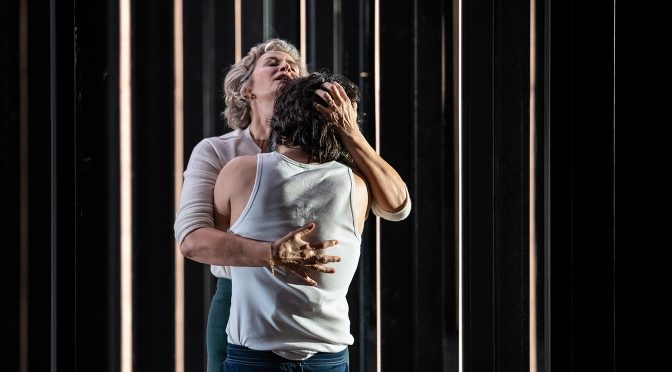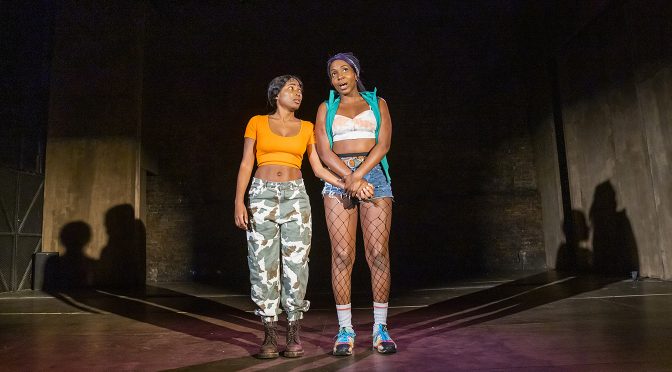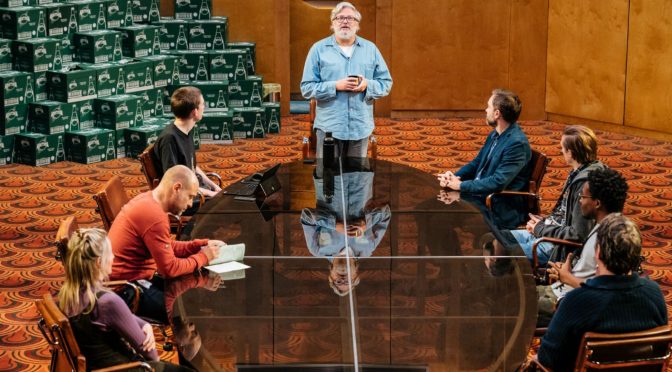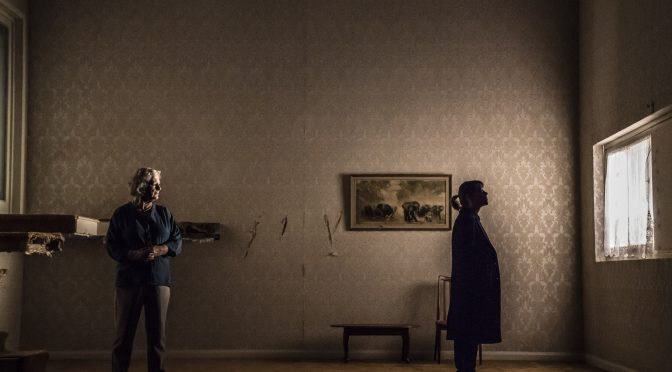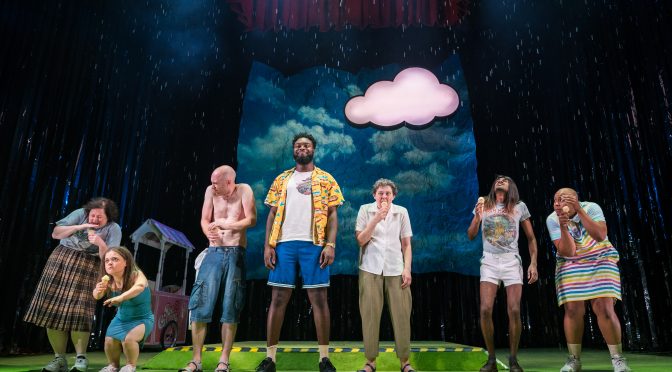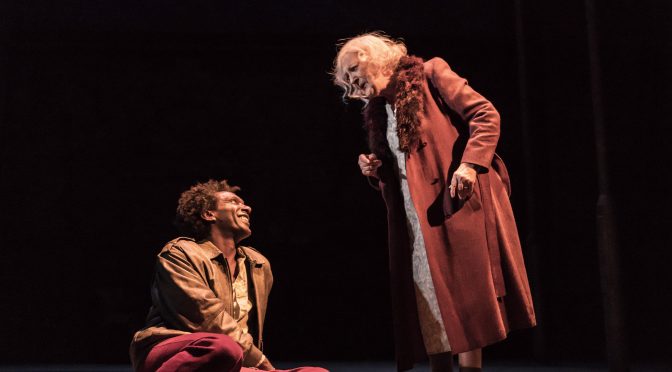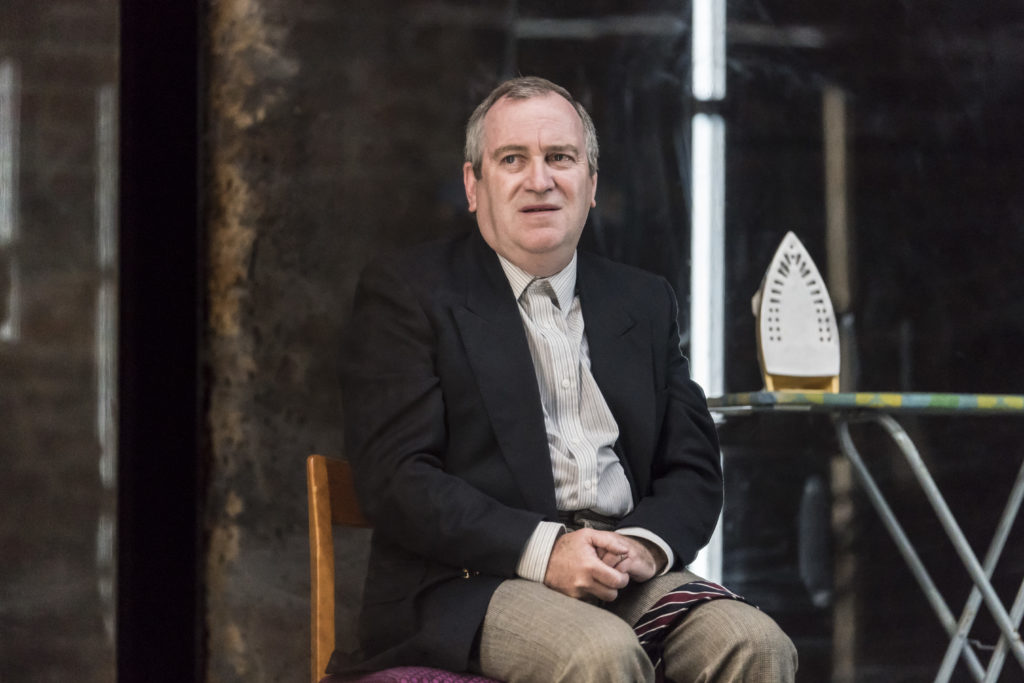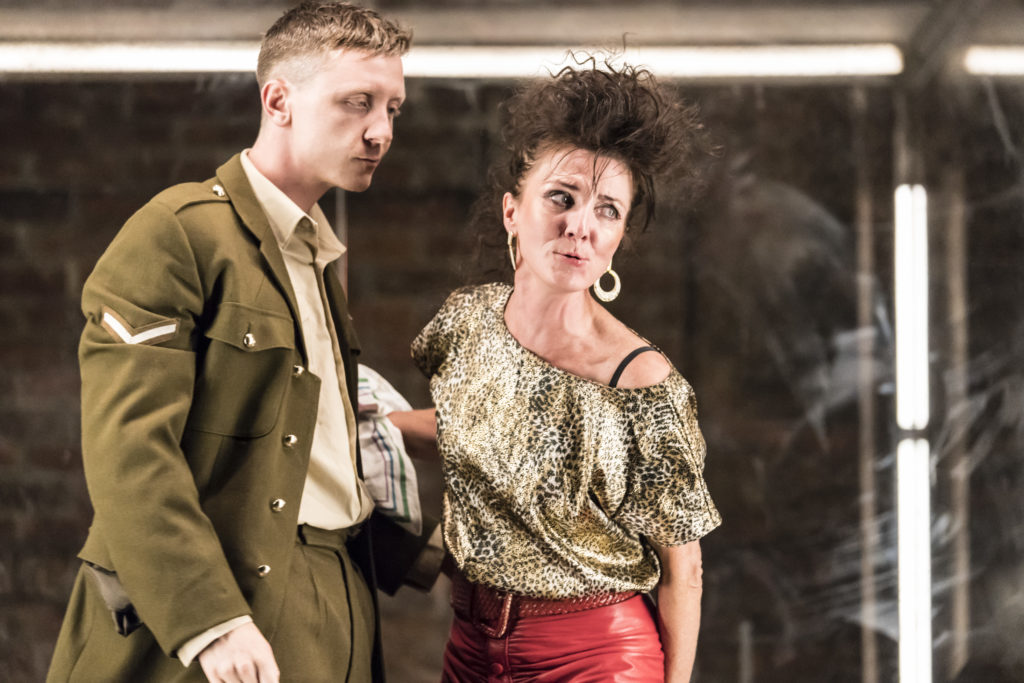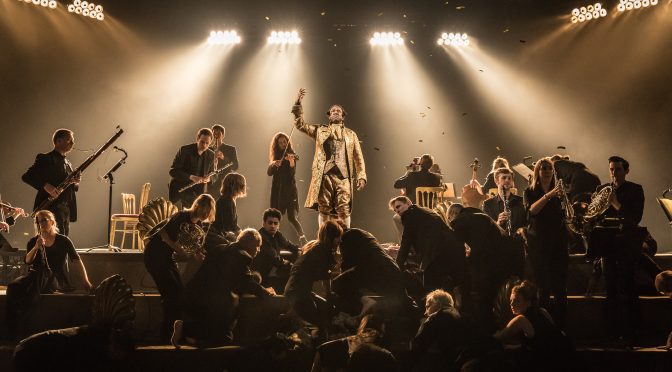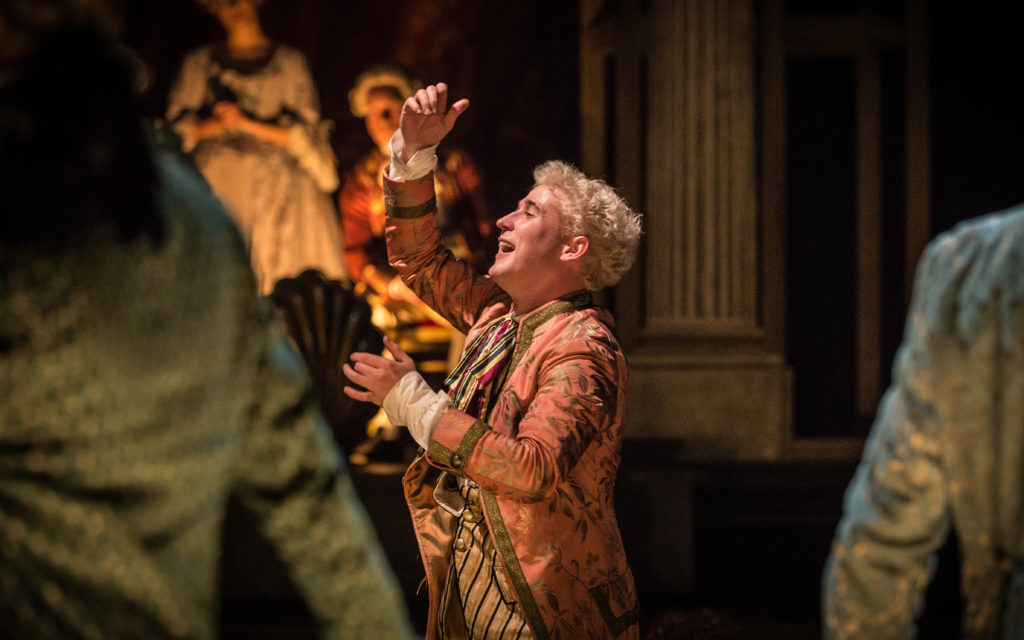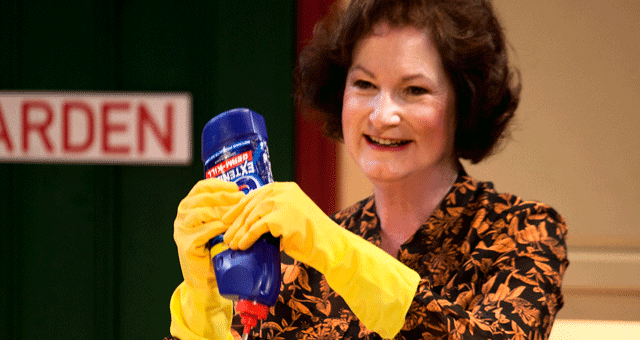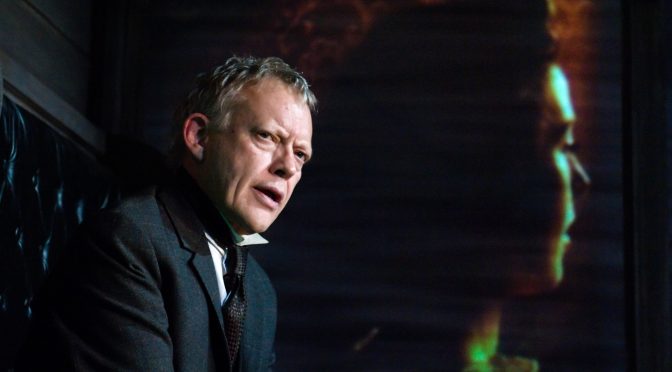This new play is inspired by works from Euripides, Seneca and Racine, but director and writer Simon Stone’s ambition is to present a story for our times. Brimming with contemporary concerns, in an arguably self-conscious fashion, this production is superbly performed and perfectly stylish.
First up, there’s privilege. For Phaedra we have Helen, a successful and wealthy politician full of charisma and undoubtedly powerful. It’s a change to the source material that makes sense and, taking the title role, Janet McTeer has a regal quality. You can picture the admiration, and envy, of those around her.
The family Helen dominates is Stone’s idea of the liberal elite – oh-so erudite and out of touch. The dinner table has conflict and quotes – Helen’s son, daughter and husband are full of wit and neurosis. Their chat is funny, but it might be hard to relate to this family, especially given Chloe Lamford’s design.
The set is a glass box (remember Yerma?) but, here, it rotates. The sense of voyeurism engendered is intense. It’s with the sound design that the eye-catching idea comes into its own – characters can talk over one another and speak at volumes not normally possible on stage.
Into the mix comes Sofiane, the son of Helen’s long-deceased lover. Everyone’s lives start to get messy (do they have real problems for a change?). While Assaad Bouab has great presence in the role, bringing a magnetism to match McTeer, I’m not sure his character is really the ‘enigma’ the play claims. Open about motivations and desires, Sofiane is also very clearly a vehicle for the topic of colonialism.
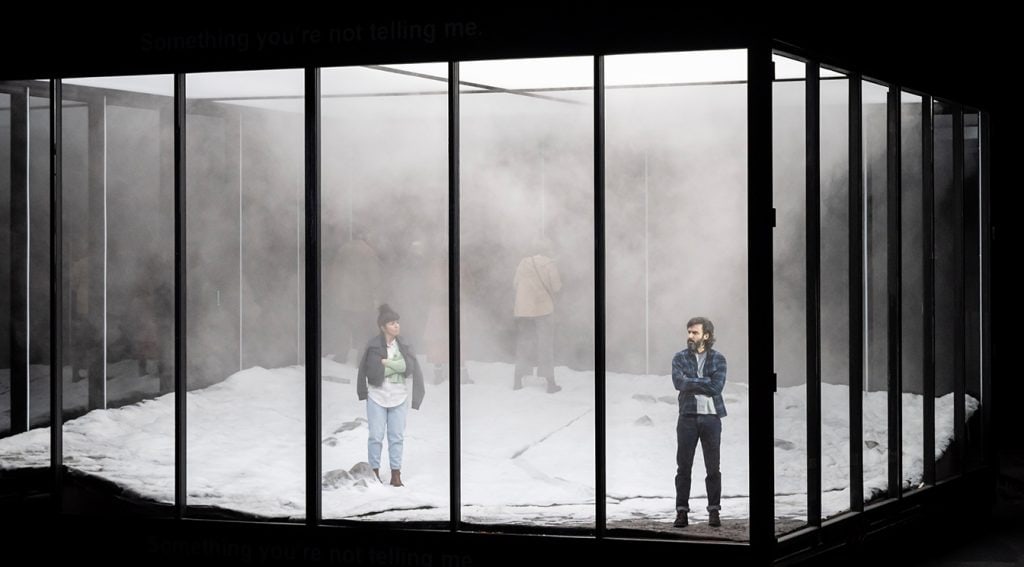
Intersecting with Helen’s privilege, voiceovers from Sofiane’s father (that fill in scene changes) are fantastic. But if the intention was to give the colonised experience a voice, then more is needed. Thankfully, the final scenes in Morocco are excellent and there’s a starring role for Sofiane’s wife. Also good is the fascinating role for Helen’s friend and colleague Omolara – a brilliant Akiya Henry – who roots the play by being removed from the heady action.
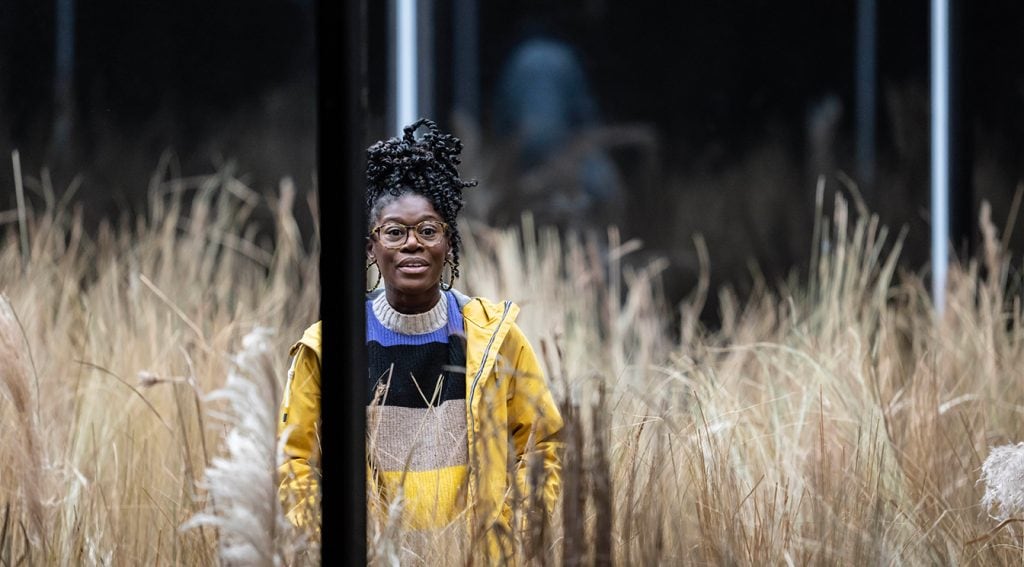
When it comes to the passion Phaedra is famous for, whether it convinces a modern audience is an open question. Nowadays, we have a short list of taboos – would Helen’s actions really have ended her career? More interestingly, there is an engagement with the theme of compromise in the play that is appropriate in our polarised times.
The lust Helen experiences leads to great drama – this show is exciting. Framing selfish actions as a protest against ageism and misogyny is a confrontational strategy. But is the finale surprisingly conservative? As in his source material, the woman must be punished. And, in the end, for all its qualities, that makes Phaedra feel old-fashioned.
Until 8 April 2023

